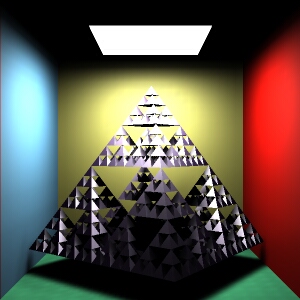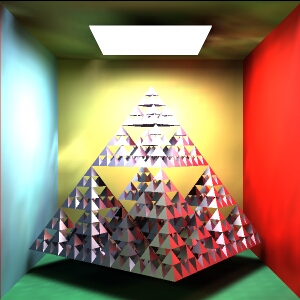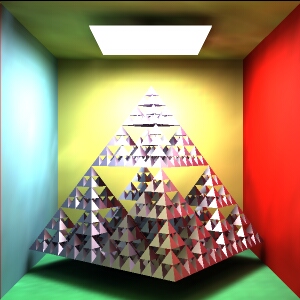





Abstract:
The paper introduces a method that can combine continuous and finite-element
approaches, preserving the speed of finite-element based iteration and
the accuracy of continuous random walks.
The basic idea is to decompose the radiance function to a finite-element
component that is only a rough estimate and to a difference component that
is obtained by Monte-Carlo techniques. The classical iteration using finite-elements
and random walks are handled uniformly in the framework of stochastic iteration.
This uniform treatment allows the finite-element component to be built
up adaptively aiming at minimizing the Monte-Carlo component. The method
is also suited for interactive walkthroughs and view-animation since when
the viewpoint changes, only the small Monte-Carlo component needs to be
recomputed. With this approach quite complex scenes consisting of tens
of thousands of surface elements can be rendered in about a minute, and
when the solution is available, we can walk in the scene
interactively.
Keywords:
Non-diffuse global illumination, stochastic iteration, Monte-Carlo quadrature,
global methods, finite-element techniques, random-walk

|

|

|

|

|

|